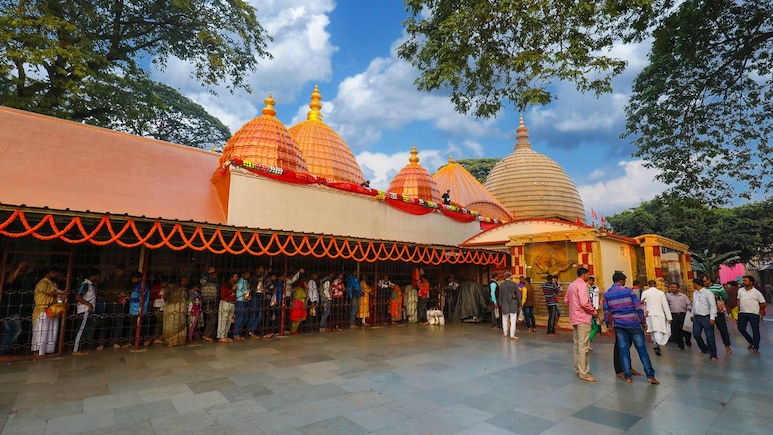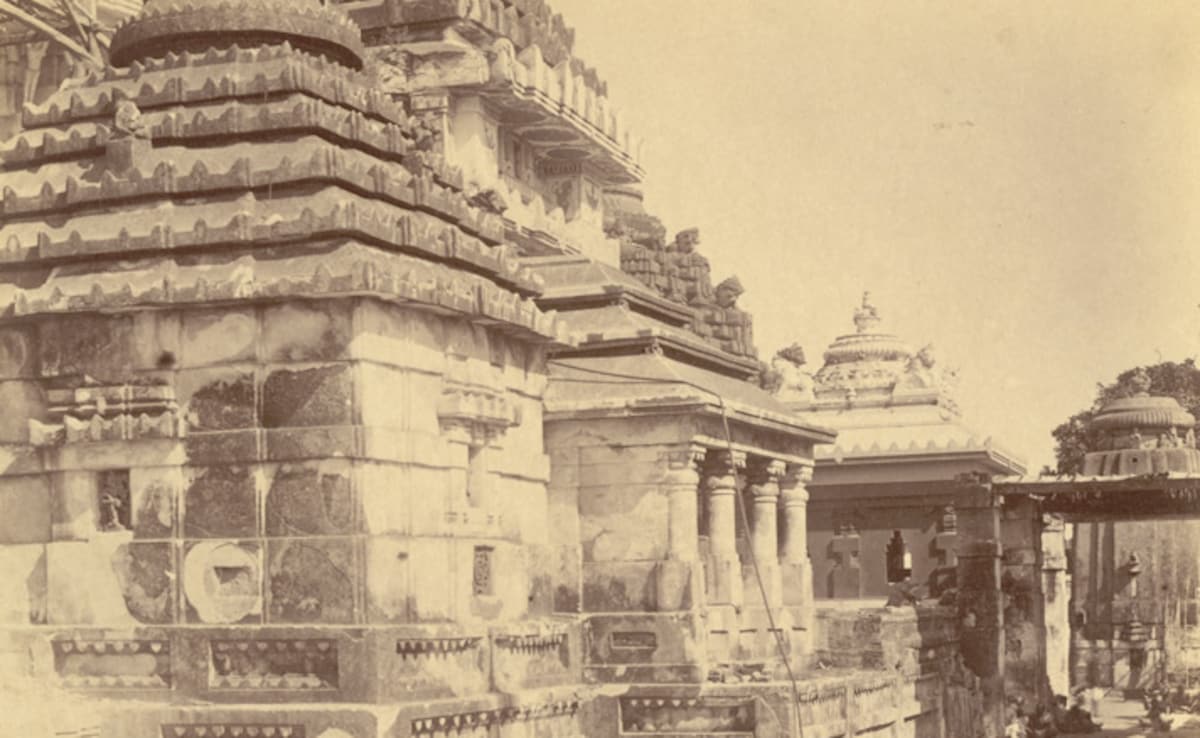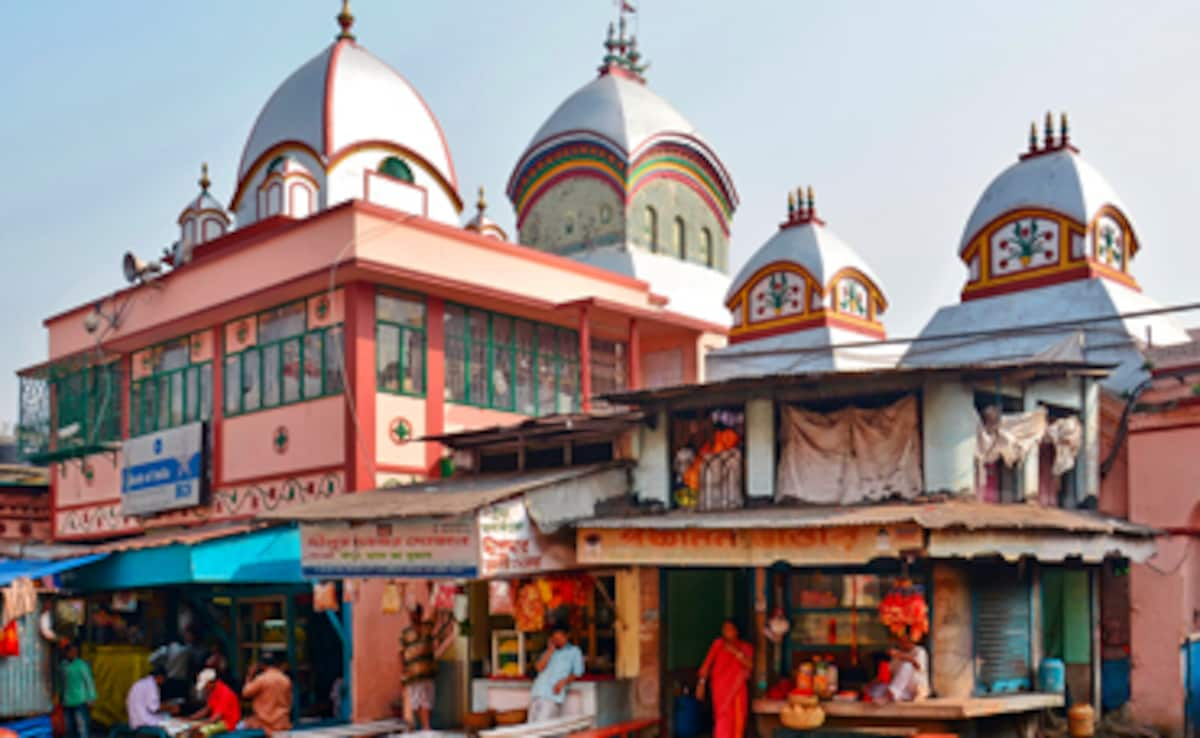
- Non-vegetarian prasad is offered in certain Indian temples as part of ancient rituals and tribal customs
- Tantric worship recognises five M elements including meat and fish as symbolic tools for spiritual liberation
- Animal sacrifice was historically part of Vedic rituals but declined with Bhakti and Ahimsa philosophies
The aroma of mutton curry wafting through temple courtyards may sound unusual. But in parts of India, it is a sacred scent of devotion. While most people associate temple prasad with sattvik thalis, laddoos, or khichdi, India's spiritual landscape is far more diverse. In certain Hindu temples, non-vegetarian food, from fish to goat meat, is not only accepted but revered. These offerings are deeply rooted in ancient traditions, tribal customs, and regional beliefs, where devotion is expressed through local flavours and centuries-old rituals.
Whether it is goat meat offered during Ambubachi Mela in Assam or fish served with toddy in Kerala, these practices reflect a sacred bond between faith and food. Here is a closer look at why some temples offer non-vegetarian prasad, and seven prominent examples across India where faith and food meet in ways that may surprise many.
Also Read: 7 Popular Temples Of North India Everyone Should Know About... And Visit
Why Some Temples Serve Non-Vegetarian Prasad?
Tantra And The 'Five M' Elements:
Many of these practices are rooted in Tantric worship, which recognises the 'five M' elements - madya (alcohol), maansa (meat), matsya (fish), mudra (grain), and maithuna (union). These are not indulgences but symbolic tools for spiritual liberation, representing the surrender of worldly desires.
Temples such as Kamakhya in Assam, Tarapith in Bengal, and Kalighat in Kolkata are living centres of Tantric sadhana, where meat offerings are part of rituals meant to invoke fierce goddesses and channel transformative energy.
Vedic Sacrifice And Tribal Traditions:
Contrary to popular belief, animal sacrifice was part of ancient Hindu rituals. The Yajurveda and Kalika Purana mention offerings of goats and buffaloes in yajnas. With the rise of Bhakti movements and Ahimsa philosophies, such practices declined in mainstream Hinduism.
Yet in tribal and folk traditions, particularly in eastern and southern India, they continue as sacred acts of devotion. For communities, these offerings are not violence but symbolic acts to appease deities and seek blessings.

Photo Credit: parassinimadappurasreemuthappan.com
Temples In India Where Non-Vegetarian Food Is Served As Prasad:
1. Kamakhya Temple, Assam
Perched atop the Nilachal Hills in Guwahati, the Kamakhya Temple is one of India's most significant Shakti Peethas. It marks the spot where Goddess Sati's womb is believed to have fallen, making it a symbol of fertility and creation.
During the annual Ambubachi Mela, the temple closes for three days to signify the goddess's menstruation. When it reopens, devotees are offered goat meat and fish chutney as prasad. The ritual celebrates fertility, nourishment, and the cyclical nature of life, while also challenging societal taboos around menstruation and reframing it as divine.
2. Muniyandi Swami Temple, Tamil Nadu
In Vadakkampatti near Madurai, the Muniyandi Swami Temple hosts a vibrant annual festival where the prasad is chicken and mutton biryani, cooked in massive vessels and served hot in the morning.
Dedicated to Lord Muniyandi, regarded as a guardian deity and an avatar of Shiva, the temple draws thousands of devotees. For them, tasting the biryani is as sacred as bowing before the deity, turning the temple grounds into a communal feast of faith.
Also Read: 7 Temple Towns In India That Are Architectural Masterpieces
3. Parassinikadavu Temple, Kerala
In Kannur district, the Parassinikadavu Temple is dedicated to Lord Muthappan, a deity worshipped through folk rituals and Theyyam performances. Offerings here include fried fish and toddy, reflecting the lifestyle of the local fishing community.
Prasad is served daily, and devotees from all castes and faiths are welcomed. The temple's inclusive ethos and rooted rituals make it one of the most distinctive spiritual spaces in India, showing how food and faith evolve with community life.
4. Tarkulha Devi Temple, Uttar Pradesh
Located in Gorakhpur, the Tarkulha Devi Temple becomes a focal point during Chaitra Navratri. Devotees offer goat sacrifices, and the meat is cooked in clay pots on the temple grounds.
The dish is then distributed as prasad, regarded by locals as both sacred and celebratory. The temple is associated with wish fulfilment, and offerings are seen as acts of gratitude. The ritual is believed to stem from tribal traditions of seeking divine protection through animal offerings.
5. Tarapith Temple, West Bengal
In Birbhum district, the Tarapith Temple is known for its intense Tantric rituals. Devotees offer goat meat and fish, often accompanied by alcohol, as bhog to Maa Tara, a fierce form of Goddess Kali.
The temple stands beside a cremation ground, where sadhus perform rituals using skulls, ash, and animal sacrifice to invoke the goddess's raw energy. Here, prasad functions as more than food - it becomes a spiritual medium for transcendence.
6. Vimala Temple, Odisha
Located within the Jagannath Temple complex in Puri, the Vimala Temple honours Goddess Bimala, a Durga avatar. During Durga Puja, fish from the sacred Markanda tank and goat meat are offered and later distributed as Bimala Parusa prasad.
Interestingly, these rituals take place before the main doors of the Jagannath Temple open, highlighting the diversity of traditions within the same complex. The Vimala Temple reflects Odisha's layered culinary and spiritual heritage, where fish is both sacred and symbolic.
Also Read: Konark Sun Temple Secrets: Why This Odisha Wonder Still Fascinates Visitors

Photo Credit: Google Image
7. Kalighat Temple, Kolkata
One of the 51 Shakti Peethas, the Kalighat Temple in Kolkata continues the practice of daily animal sacrifice. While Goddess Kali receives vegetarian bhog, her attendant deities - the Dakinis and Yoginis - are offered meat, which is then cooked and shared as prasad.
This centuries-old ritual remains a symbol of devotion, sacrifice, and spiritual intensity. Kalighat reflects how faith and food converge in traditions that remain alive even in modern urban life.

Photo Credit: wbtourism.gov.in
Faith, Food, And Sacred Traditions:
India's spiritual map is vast and layered. These temples highlight that faith is not monolithic but shaped by geography, community, and centuries of tradition. Whether it is biryani in Tamil Nadu or fish in Kerala, non-vegetarian prasad carries stories, rituals, and reverence.
Though these practices may surprise some, they are deeply rooted in history and local culture. They challenge stereotypes and invite us to view devotion in a broader light - one that is inclusive, earthy, and profoundly Indian.
Track Latest News Live on NDTV.com and get news updates from India and around the world

